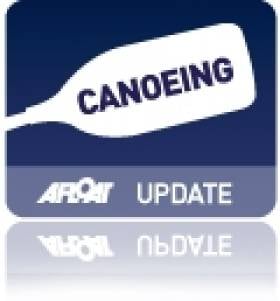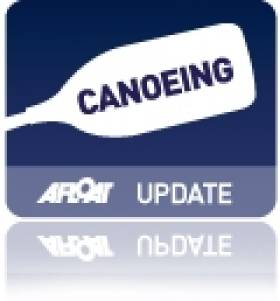Displaying items by tag: Countryside Access and Activities Network
New Coastal Canoe Trails for Northern Ireland
This week Northern Ireland welcomes the launch of two new coastal canoe trails.
The new Foyle Canoe Trail stretches for 33 miles from Lifford in Co Donegal to Moville on the Inishowen peninsula at Lough Foyle, passing through Derry on the way, with plenty of wild and official campsites along the route.
Meanwhile, the South East Coast Canoe Trail is a sea kayaker's dream – 50 miles of rocky bays and sandy beaches past the Mourne and Cooley mountain ranges from Strangford village to Newry.
According to OutdoorNI.com, the trails were developed by the Countryside Access and Activities Network (CAAN), the Loughs Agency and Down and Derry District Councils, add to the five inland canoe trails already in place.
CAAN development officer Kathryn Callaghan commented: "Both these trails offer a golden opportunity for us all to explore two picturesque corners of Northern Ireland from a unique perspective.”
Waterproof guides for both trails are available free from from local tourist information centres or online from www.canoeni.com.
The coastal trails are the first of four to be launched in 2011. Later this year the North Coast Canoe Trail will take in the Giant’s Causeway and Carrick-a-rede Rope Bridge, while the East Coast Canoe Trail will pass the renowned Glens of Antrim, Belfast Lough and the Ards peninsula.
Lough Erne Canoe Rally Paddles Against Global Warming
Ireland's largest residential activity centre, Share Holiday Village is proud to announce that the third annual brites Lough Erne Canoe Rally will take place on 25th and 26th September 2010.
This year the event, which attracts paddlers from all over Ireland, is set to have more of an environmental message as SHARE was heavily affected by the Fermanagh Floods in 2009, which some have attributed to the heavy rainfall associated with Global Warming. Indeed canoeing is the perfect platform in which to promote this environmental message to local schools and businesses as it is one of the more idyllic forms of recreation that can be enjoyed on Lough Erne.
Both Share and brites are leaders in the field of renewable energy. Over the past 10 years Share has installed the largest reed-bed water purification plant in Northern Ireland and has built up an extensive portfolio of renewable technologies. These include three wind turbines, four solar water heating systems, and four wood pellet burners. The fuel for these wood pellet burners is supplied by Balcas, the manufacturers of brites. Share can now boast of using 99% renewable electricity on site, and 90% renewable heat, resulting in a total overall offset of CO2 of almost 300 tonnes.
Paula Keelagher, brites Technical Development Manager, at Fermanagh based Balcas comments: "We are delighted to be supporting the Lough Erne Canoe Rally once again. It has been great to see the event develop over the last two years and we look forward to seeing many local companies, schools and organisations taking part this year. We will of course be entering into the spirit of the competition with our own brites team and wish everyone who is participating the best of luck."
Chris Scott, Marketing Officer, Countryside Access and Activities Network (CAAN) which the event also helps to promote comments; "It is great to see Share hosting such a professionally organised event on the Lough Erne Canoe Trail. The brites Lough Erne Canoe Rally is a fantastic showcase for this award winning trail. The event doesn't take itself too seriously, fun is the focus highlighted by the fact most points are awarded for the fancy dress competition on Saturday evening."
The event is set to make quite a splash amongst canoeing enthusiasts as Robert Livingstone, Share's Operations Manager, describes: "It is great to see the canoeing clubs, classes and organisations come on board to help promote the event. The competitive fancy dress element and the strict event rules with regard to using the same boat for all disciplines will make the event unique and lots and lots of fun for all involved. We are delighted to welcome back Boots and Paddles for the Special Olympics section of the event and hope that we can develop a similar group on Lough Erne".
For more information on the brites Lough Erne Canoe Rally and other outdoor activity packages please contact Rory – Share Marketing Officer on 028 6772 2122 or [email protected] or visit http://www.sharevillage.org/upcoming-courses-and-events/






























































